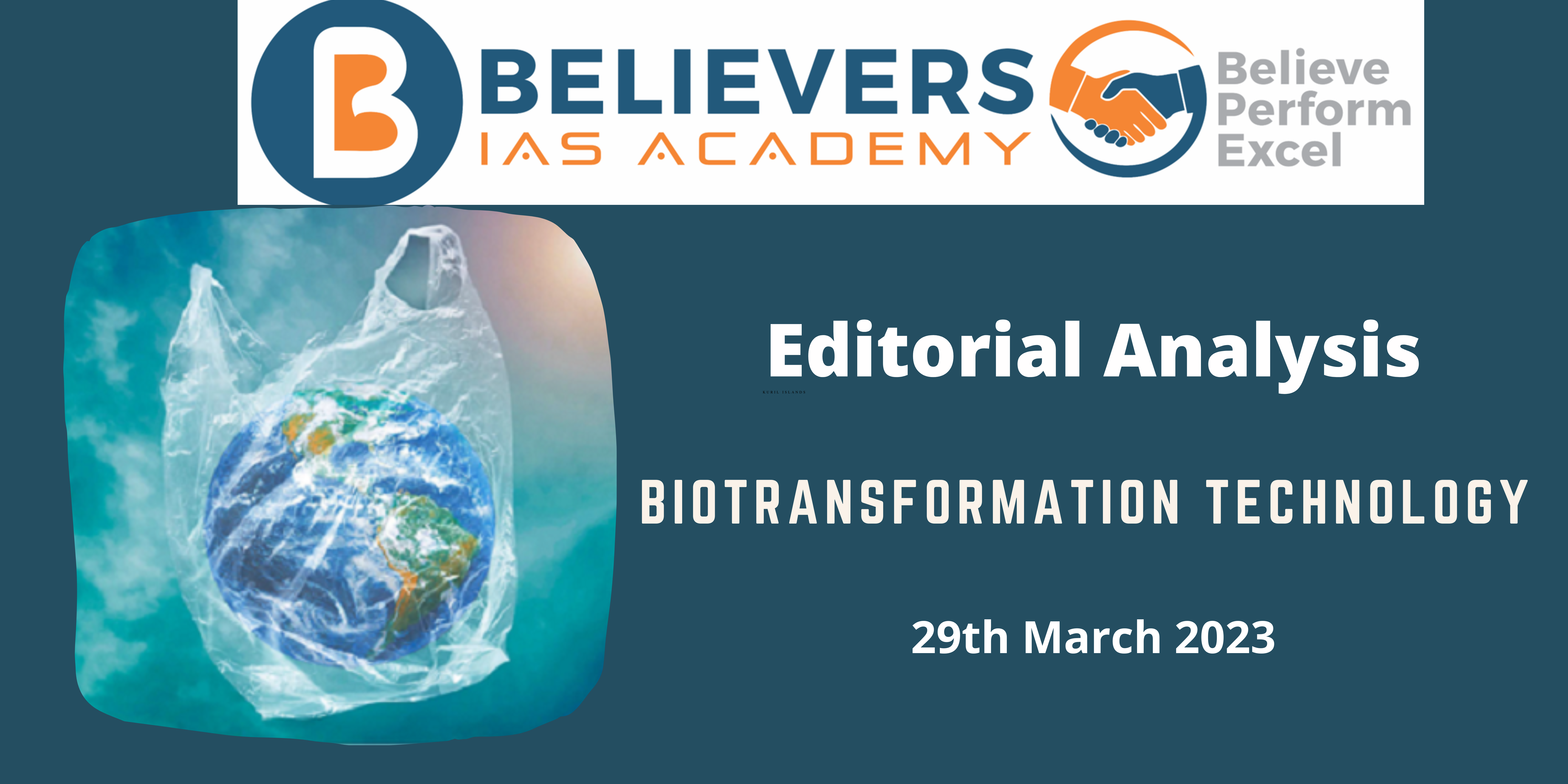Biotransformation Technology
#GS3 #Technology
Context:
- A Uk based start-up claims that it has developed a technology that could alter the state of plastics and make them biodegradable.
- The company calls it biotransformation. It claims the technology would digest the plastic packaging waste naturally with help of microbes and biodegrade the waste without leaving behind any microplastics.
Major problem:
- India generates 3.5 billion kgs of plastic garbage per year, and per capita, plastic waste production has more than doubled in the last five years. A third of this originates from packaging.
- Amazon alone produced an estimated 321 million kg of plastic from wrapping materials in 2021.
- As a result, the estimated accumulation of plastic garbage in the world is so high that an instant reaction is required to recoup from this event.
Solution:
- The technology was created in collaboration with the Imperial College in London, UK, and Polymateria, a British company.
- Plastics produced with this technology are given a pre-programmed period during which the manufactured material appears and feels like traditional plastics without sacrificing quality.
- When a product reaches the end of its useful life and is exposed to the external world, it self-destructs and biotransforms into Bio available wax. Microorganisms devour this wax, transforming refuse into water, CO2, and biomass.
- This is one of the world’s first biotransformation technology that ensures polyolefins fully biodegrade in an open environment causing microplastics
- This technology is highly beneficial in the fields of Food packaging and Health Care Industries where it can reduce the waste of plastic.
Government Initiatives:
- Plastic Waste Management Rules (2016): The government has formulated the Plastic Waste Management Rules, 2016, which aim to promote the environmentally sound management of plastic waste in the country. The rules prescribe the responsibilities of waste generators, local bodies, and other stakeholders in the plastic waste management process.
- Swachh Bharat Abhiyan: The Swachh Bharat Abhiyan (Clean India Mission) launched in 2014, aims to make India clean and free from open defecation, litter, and garbage. One of the key components of this mission is the management of plastic waste.
- Extended Producer Responsibility (EPR): The government has introduced the concept of Extended Producer Responsibility (EPR) in the Plastic Waste Management Rules, 2016. Under this concept, manufacturers, importers, and brand owners of plastic products are responsible for the collection and disposal of the plastic waste generated from their products.
- Ban on Single-use Plastic: The government has banned single-use plastic in several states and cities across the country. The ban covers plastic bags, cups, plates, and straws, among others.
- Swachh Survekshan: The Swachh Survekshan is an annual survey conducted by the government to evaluate the cleanliness and sanitation of cities and towns in India. One of the parameters of the survey is the management of plastic waste.
- National Clean Energy Fund (NCEF): The NCEF provides financial support for research and development in clean energy technologies, including waste-to-energy technologies. The fund has supported several projects on plastic waste management.




